“If Only You Could See What I’ve Seen With Your Eyes” Blade Runner
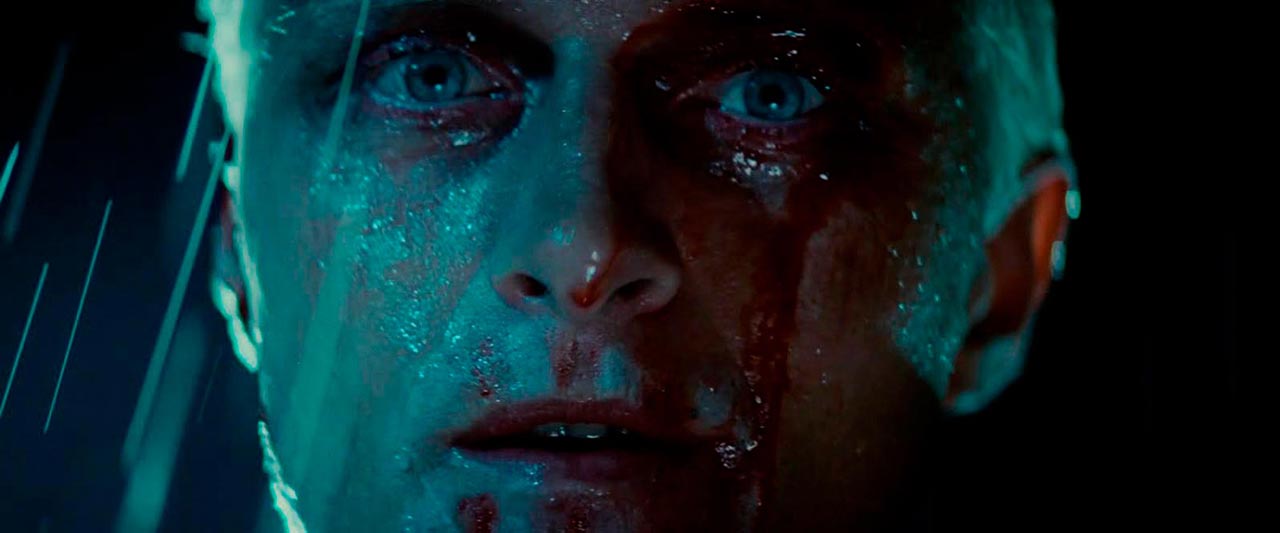
Season 3, Episode 1 Blog Notes: “If Only You Could See What I’ve Seen with My Eyes”, Blade Runner, Aired May 10, 2023
CLICK HERE TO LISTEN TO THE EPISODE
CLICK HERE TO WATCH EPISODE ON YOUTUBE
Commentary Segment
For the premiere episode of Popped!’s third season, Daniel, Ben and Tanya tackled the film, Blade Runner. Daniel praised it as his favorite film of all time and noted that it was hypnotic and dark, but absolutely beautiful. It was the first ever VHS he bought and he said that the motifs and symbolism in the film grab him and pull him in. As a musician, he was also drawn in by the music, and called the Vangelis soundtrack “mesmerizing”. Tanya first saw the film in high school and “watched it into the ground” during her teens and twenties. She noted that the film creates the perfect mood and considered it to be one of the most realistic takes on a dystopian future that she had seen. She also appreciated the philosophical and ethical questions it raised, saying that there was a lot of meat to digest and that she still gleans things from additional viewings. We all know how Ben feels about time travel movies by now, but he clearly has no problem with films that take place in the future since Blade Runner is one of his “tippy-top” films of all time. He went on to call it a “perfect film”. He felt that was incredibly well done and he respected the fact that it doesn’t drive home its dark feeling by “turning down the lights”. He also might have thrown just a wee bit of shade at Batman, but we digress.
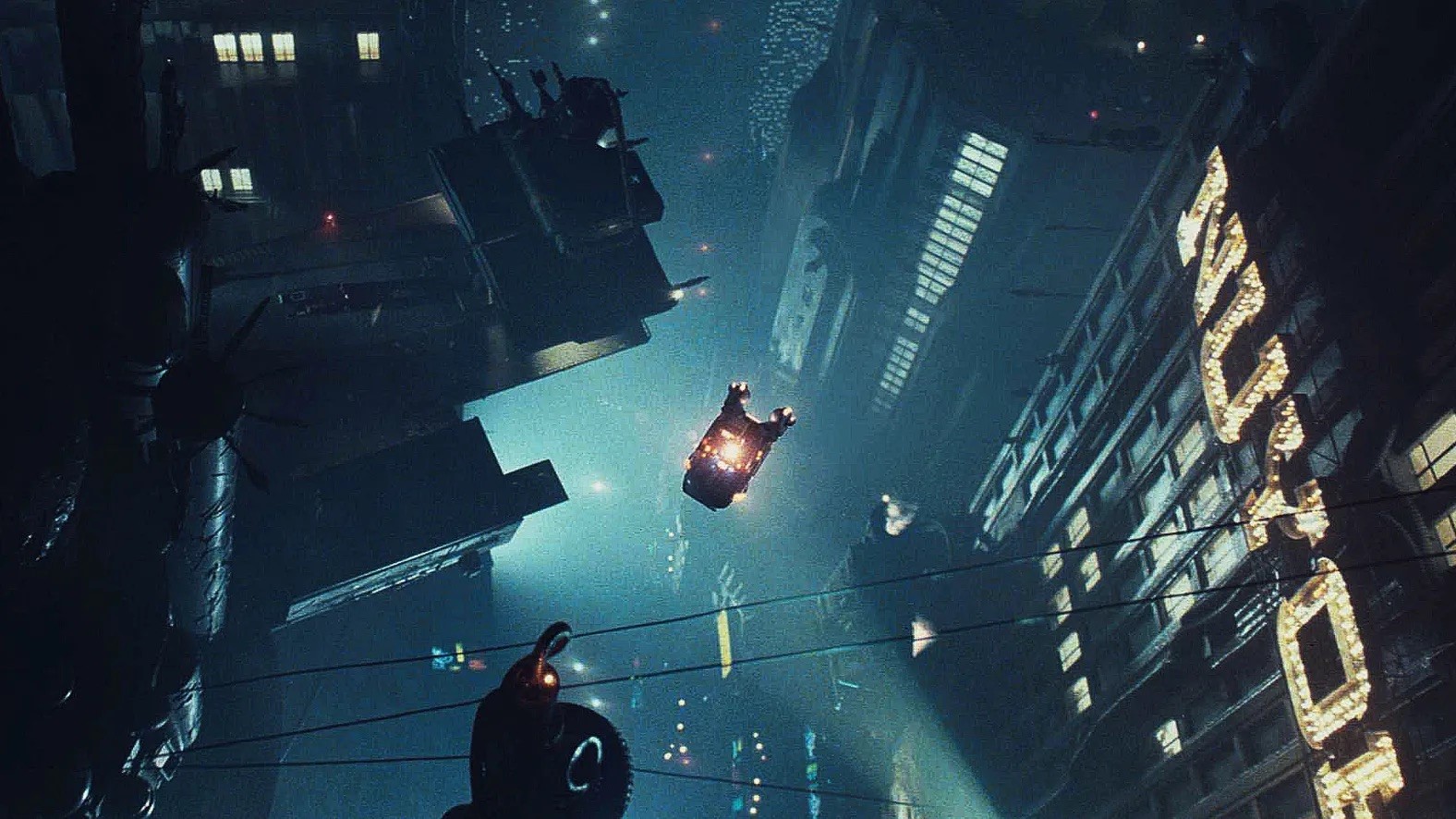
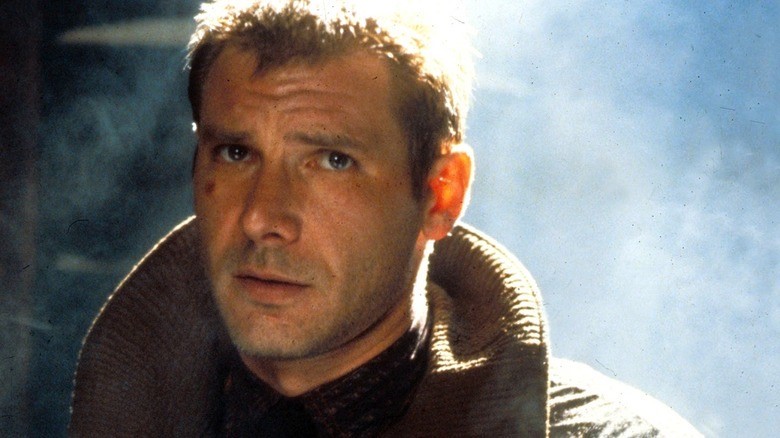
The discussion then shifted to things that didn’t come to fruition considering the film was set in 2019 (in 1982 that was a far-off year—strange but true). Daniel pointed to flying cars, off world migration to escape environmental catastrophe (not yet), androids that blur the lines between man and machine (getting there), and Los Angeles as a living hell of ziggurats and smokestacks (that one may be closer to reality). Ben added that engineered body parts have yet to make their appearance. Daniel brought up the cloning of animals, and the gang agreed that although Dolly the sheep was cloned (off recording, Ben made the quip “but isn’t Dolly a llama?”—just had to throw that gem in!), that the cloning of animals to replace those wiped off the planet also hadn’t happened…yet. Tanya felt that the film did predict where we are to a certain extent, pointing to overpopulation, the distinct class divide and creeping corporatocracy, which is a word that doesn’t exactly roll off the tongue.
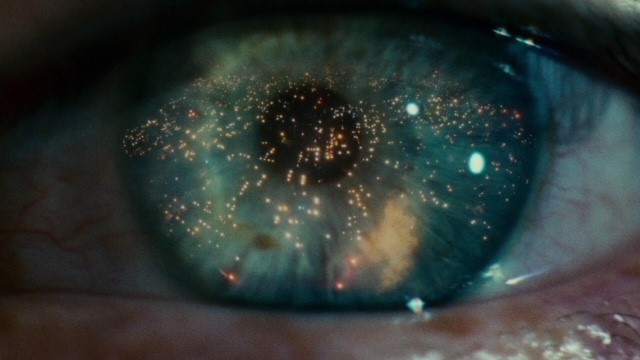
Daniel then directed the discussion to the symbolism in the film. He observed that the use of eyes and perception was prevalent and “the crux of what made the film work”. Eagle-eyed viewers may have noticed that the film’s opening shot began with a closeup of Holden’s eye reflecting the future Los Angeles hellscape.
Ben added that the film featured eyes quite a bit, referencing Gaff’s blue eyes, the reflections in the androids’ eyes, Pris blacking out her eyes and Hannibal Chew “the eye lab guy”.
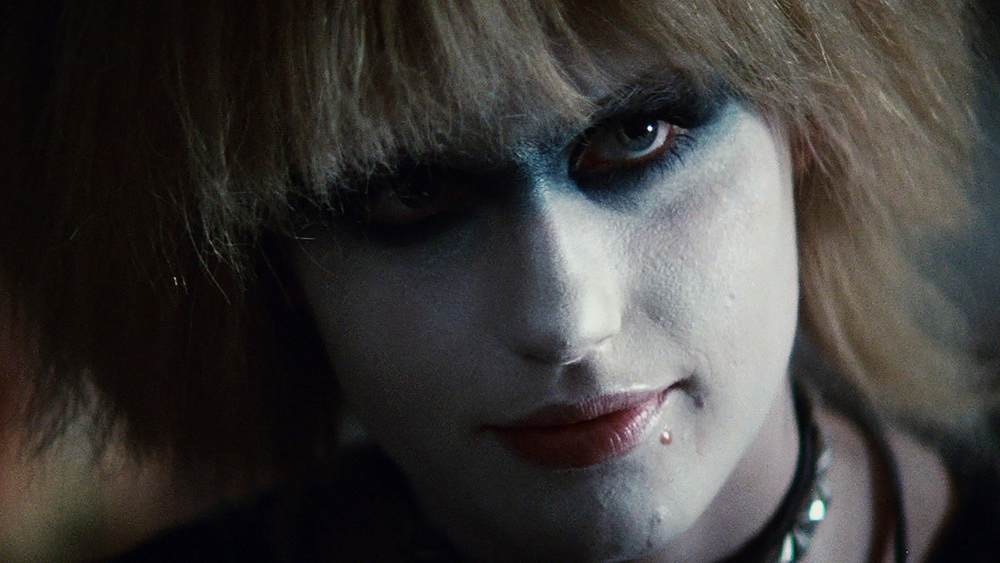
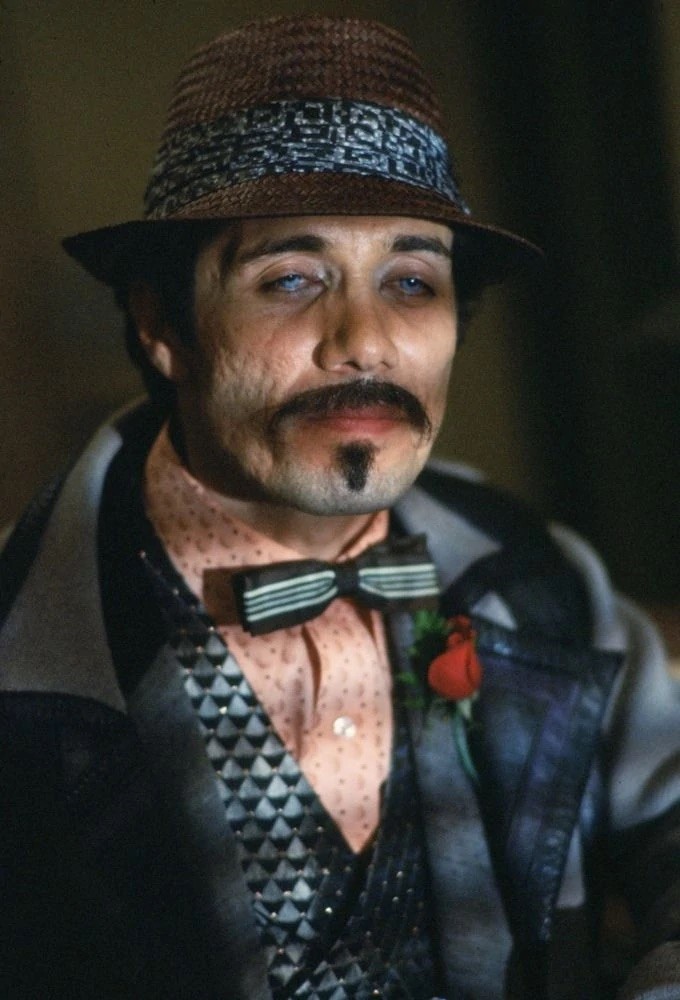
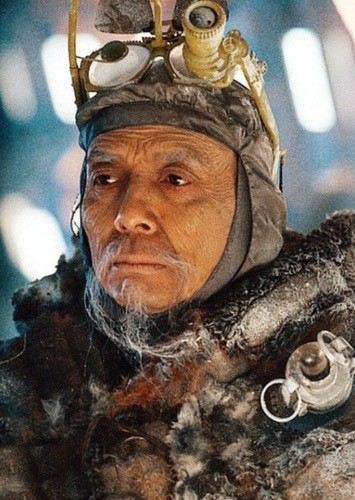
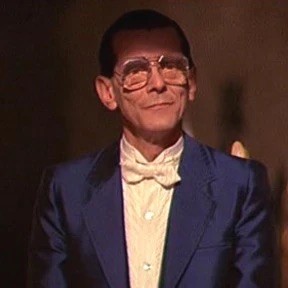
Always one to be morbid, Tanya would have been remiss not to mention Tyrell losing his eyeballs. Daniel also pointed to Leon attacking Deckard and going for his eyes. Speaking of Tyrell’s eyes (when he still had them), Daniel highlighted his thick bifocals, which to him served as a metaphor for his limited vision in understanding the future of his creation.
Ben noticed that incongruity as well and found it odd that he clearly had the money to fix them but chose not to, pointing to the fact that he didn’t trust his own technology. Daniel emphasized how perception was highlighted in multiple ways throughout the film, illustrating how people see themselves and how Deckard sees the androids.
The question was then posed by Daniel about who in the film the gang thought had the most empathy. They all agreed that without question, Roy Batty was the most empathetic character of the entire film. Daniel alluded to the moments when he mourned the loss of his companions as well as his ultimate empathy for Deckard in the end. Daniel called Batty “the most compelling character in the film” and felt that the flip from thinking that he was the sinister bad guy to become the most human character was “cinematically one of the most successful flips” he had seen.
This fact was driven home when juxtaposed with Deckard’s character, who hunted down androids with “machine-like efficiency” and cold heartedness.
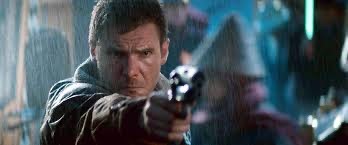
Ben believed that it was very intentional and served as a great exploration of the difference between what it means to be human or non-human. He commented that Batty was by far the better human between the two. Considering the evolution of the android mind over time, Tanya wondered when that switch to humanness was ultimately flipped and posited “what does that look like and how do you define what level of respect to give it?”.
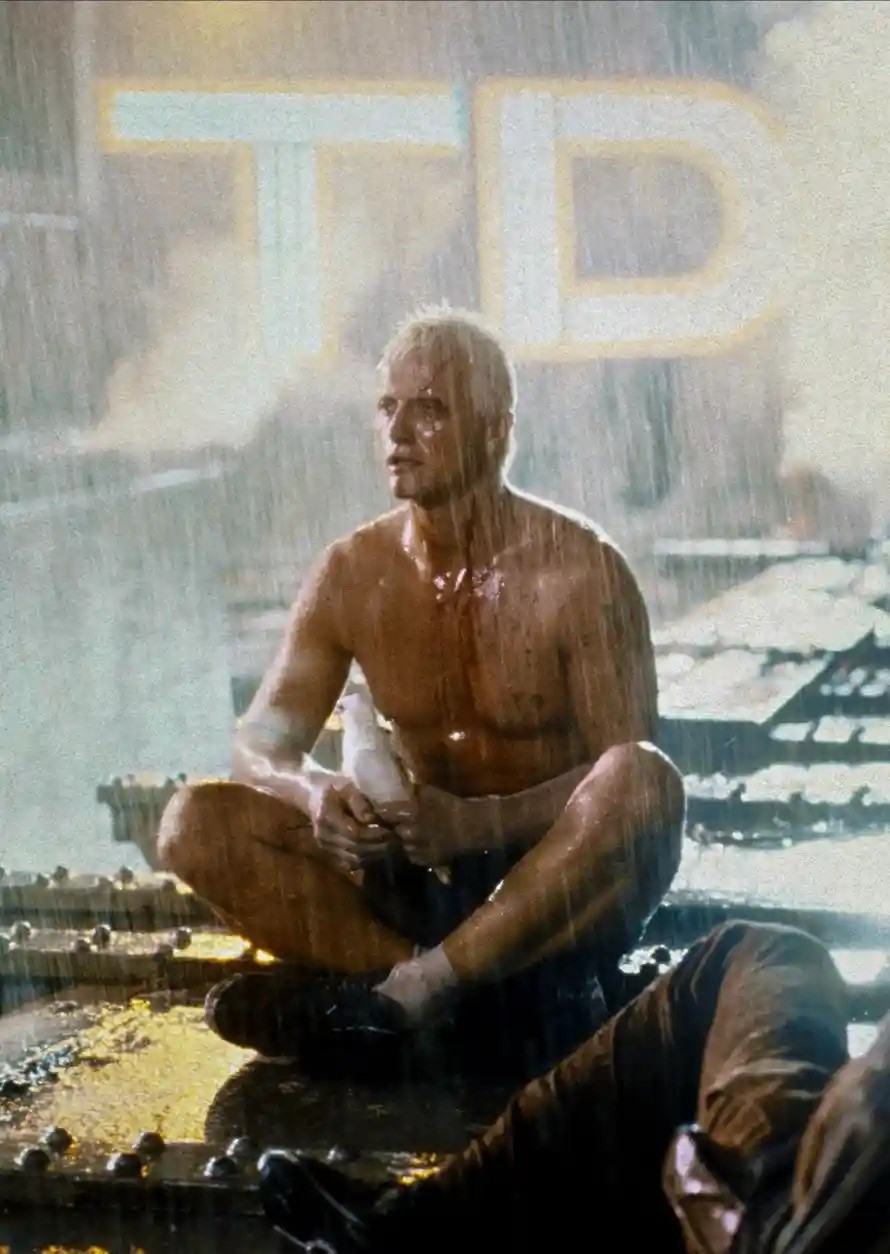
Of course, you can’t really talk about Blade Runner without talking about the Tears in Rain Speech, and that’s exactly what Daniel did next. He considered it to be “one of the best death speeches ever given on film”. He recounted a great tidbit from the film production and noted that in the original script the speech was dispassionate, four times as long and filled with techno-jargon. Hauer wanted to change it, so he took out all of the junk and kept in the human experiences that expressed his own memories. “All these memories will be lost in time—like tears in rain” was not in the script—Hauer added it and we are so thankful he did.
Daniel called it “the moment that makes the film”. Ben added that it pulled together the emotional content of the film and turned it from a “terminator-like adventure to something infinitely more thoughtful”. Tanya found it telling that what he chooses to mention in that speech were things that evoked a sense of awe and wonder.
She particularly loved the moment before the roof scene where Batty leans his head out of the window and lets the rain fall on his face, and called it a “moment of pure joy of experience, cherishing his own existence”.
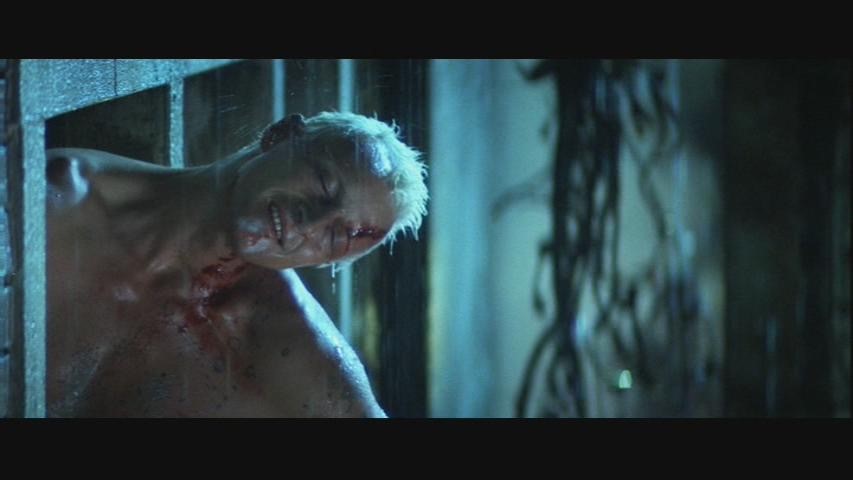
Daniel loved the film’s transition where Deckard goes from the hunter becomes the hunted—“he went from systematically exterminating them and doing his job to just trying to survive”. Ben remembered that the first time he saw the film as a kid that moment frightened him, but as an adult he could observe it for what it was. Tanya pointed to the fact that Batty goes after Deckard as an act of wrath and vengeance for his compatriots, not for self-preservation since he knows he is about to die. She appreciated the atmosphere created by Batty’s howling. Daniel indicated that the howling was very intentional—wolves howl to spook their prey (panic leads to mistakes, so keep calm and watch Blade Runner).
There were many great performances in the film. Daniel listed Daryl Hannah, William Sanderson and Joe Turkel, as well as Brion James and Harrison Ford. Tanya commented that it was one of her favorite performances of Ford’s due to its layers and depth. But for her, it was Rutger Hauer’s character made the movie. Ben agreed and proclaimed that Batty is “what the terminator wished it could have been”, and Hauer transformed him from a scary villain into an identifiable character. Batty was also one of Daniel’s favorite villains and he said that Hauer gave a “flawless performance”, making him one of his top three villains, if not the top. Looks like the “eyes” have it—sorry, we couldn’t resist. Sadly, we have lost a lot of the cast, including Joe Turkel, Brion James, Morgan Paull and Rutger Hauer. We invite you to take some time to learn more about them and their work.
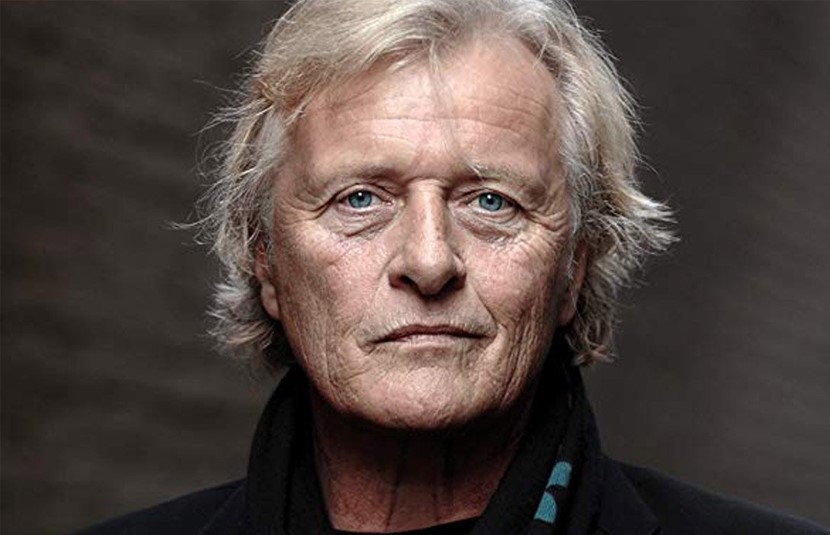
Rutger Hauer (1944-2019)

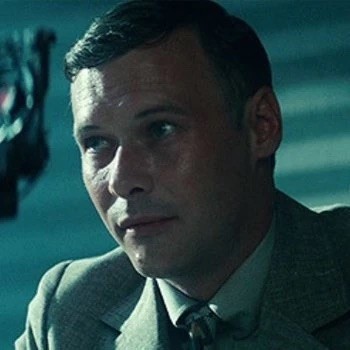
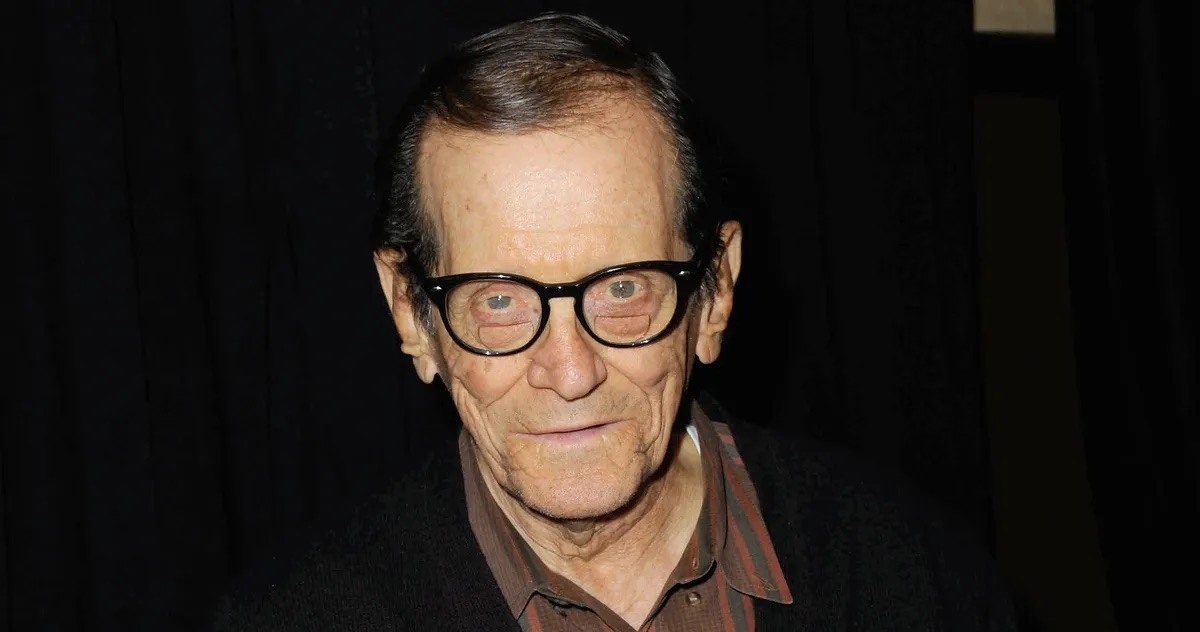
Vangelis, who did the soundtrack, also passed away recently. Daniel loved the soundscape he created for the film. He stated that it really set the film apart and created an intense mood, pointing to the “slow drawn-out electronic string section, the light bell tinking sound and that sexy saxophone”.
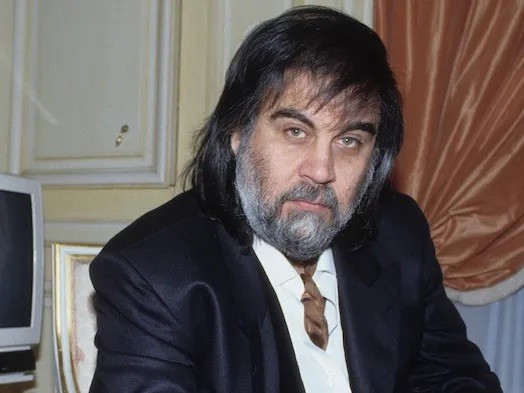
Tanya agreed and said that the music was ahead of its time and a precursor to what we see in a lot of scores today. It made her both uncomfortable and curious and she mentioned that the love song sax created a serious earworm diddling in her brain.
Daniel recounted a funny story that when he was watching the film, his girlfriend came in during the sax-laden love scene and asked “what’s with this weird porn music?”. It admittedly does have that vibe—we will let you be the judge. Ben commented that the music made him feel like he was transported into the setting and wished Vangelis could have done more films. He poetically declared that he “truly paints a beautiful picture with sound”, and with that Ben got the mic-drop trophy for this episode.
Segment: Hey, I Know That Dude
The topic of the actor spotlight for this episode was William Sanderson, who gave a riveting portrayal of the lonely recluse J.F. Sebastian.
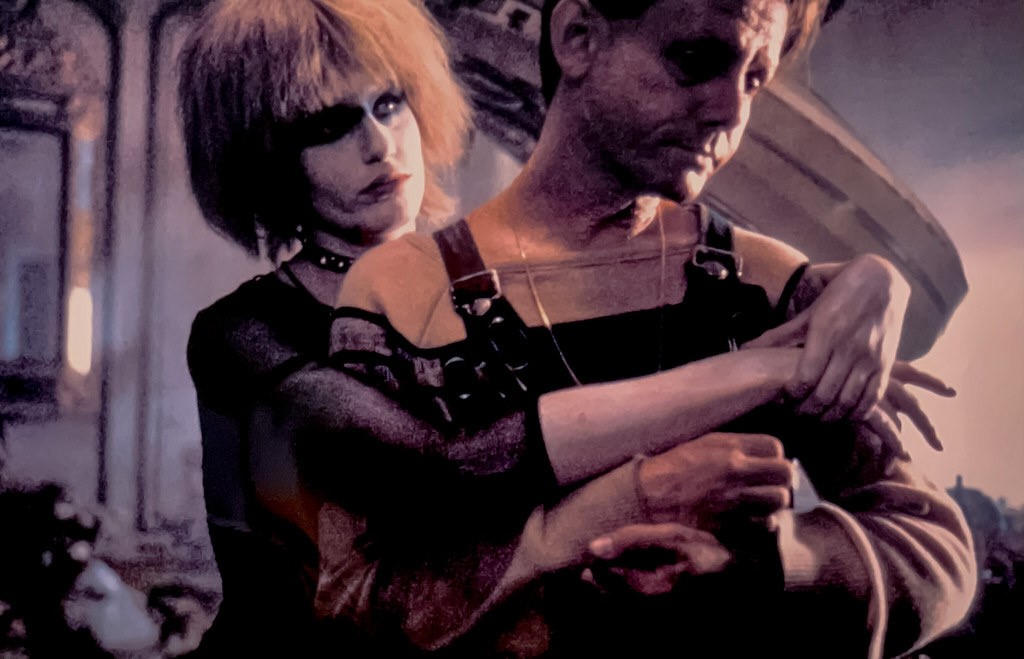
Daniel grew up watching him on the Newhart show and referred to his signature line “Hi I’m Larry, this is my brother Daryl and my other brother Daryl” (did we wake up any brain cells with that one?). He also loved him in Deadwood, where he did “a wonderful job playing a cowardly character”. Ben was surprised to find how many things he had done. He remembered him most clearly from Newhart and was delighted to find out he had done so many other things.
Tanya first consciously remembered him from Blade Runner, but loved him best as the dastardly Deuce from Babylon 5 and thus will always have a special place in her heart. She remarked that he was perfect as Sebastian and he did a great job of evoking empathy and sympathy from the viewer. Daniel added that the character in the movie was substantially better than in the book, in large part due to Sanderson’s portrayal.
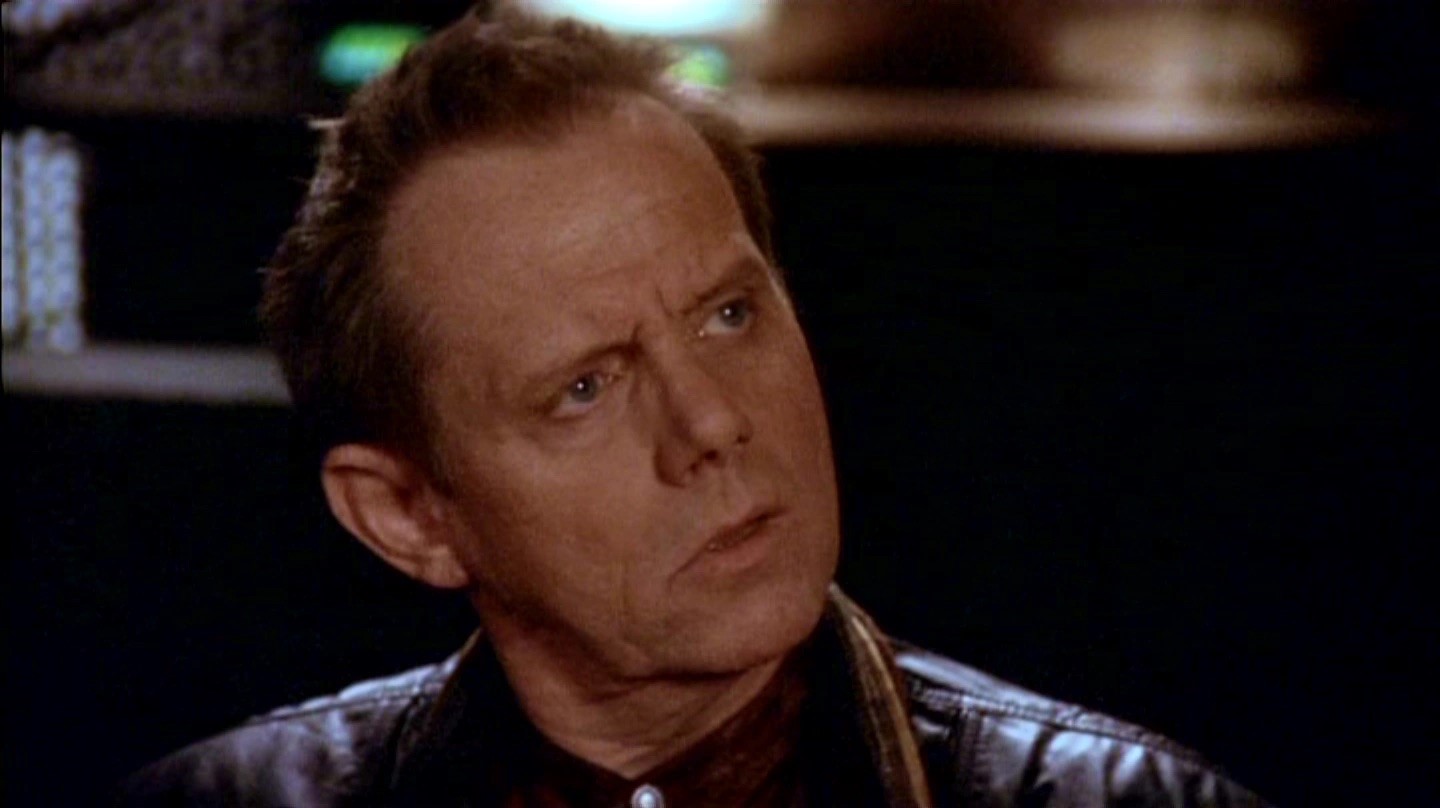
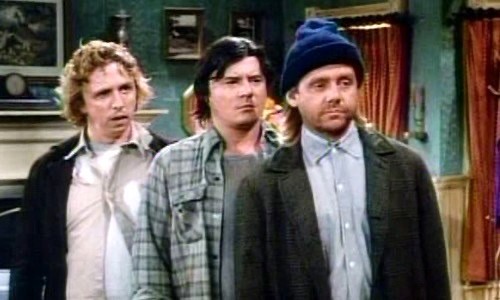
Speaking of books, Sanderson has released a book with perhaps one of the cleverest book titles ever, Yes, I’m That Guy: The Rough-and-Tumble Life of a Character Actor. The book has received stellar reviews on all major book platforms—you can order a copy here.
Segment: Could Have Done Without That
For Daniel, there was really only one thing that he could quarrel with in an otherwise perfect film, and that was the “rape-y scene”. Although he understood the context in that Deckard was just trying to get emotion out of Rachel, he was ultimately not a fan. Tanya echoed Daniel’s sentiment about that scene, and commented how when she had first seen it in the 1980’s it didn’t bother her, but it has since made her uncomfortable, noting that culture does indeed evolve. Ben called the suddenly appearing dove in Batty’s hands a “minor moment of what?”.
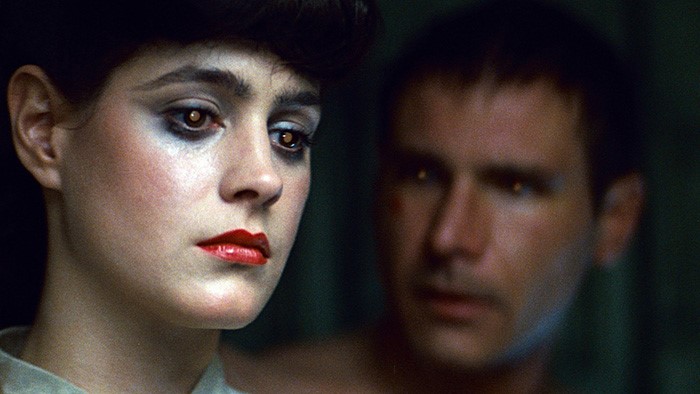
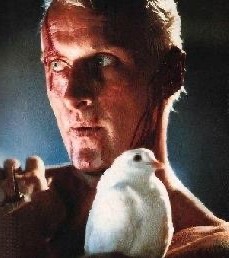
Daniel also called the narration present in the first iteration of the film his ultimate could have done without that and he was glad they removed it from subsequent cuts. He recounted a story about Harrison Ford not being a fan of the narration either, so he purposefully performed it as badly as possible but the studio used it anyway. Tanya agreed that the narration was horrible and that without it, Blade Runner became a completely different film and allowed the viewers to process things on their own terms.
Segment: Let’s Get to Poppin’
Ben- 5 – Blade Runner is one of Ben’s tippy top films of all time. He raved about to its noir style, score, delivery of characters, acting and the awesome flip at the end and said there was nothing he would change.
Tanya- 5 – Blade Runner is also one of her favorite films of all time. She loved the performances and added that the visuals of the film still hold up forty years later. She also recommended that viewers have a gander at Blade Runner 2049, which was also very good.
Daniel- 5 – While Ben and Tanya said that it was one of their favorite films, this is Daniel’s favorite film of all time and he only gave it five pops because the option for more was sadly unavailable. Particularly considering its difference (and arguable improvement) from the novel and how many times the script itself was rewritten, that such a gem was nothing short of remarkable. He appreciated the fact that the film has gained so much traction over the years and said it was rightly deserved. In a nutshell, he called it “a brilliant fucking movie”.
Blade Runner is available to stream on HBO Max, or can be rented on Amazon Prime or VUDU.
If you would like your own copy, you can order it here.
We would also like to take a moment to thank our Patreon Subscribers—Jo Addie, Rick Rigoli, Susanna Reeves, Shannon Wolmack and Victor (who is so cool he doesn’t require a last name). Their support has been invaluable and we appreciate each and every one of them. If you would like to support this show, please visit us on Patreon, where we have exclusive monthly episodes for subscribers and special swag for each tier of support.
Podcast Episode Details:
Written, Recorded and Edited by Daniel Hendrix
Intro Script by Daniel Hendrix
Performed by Daniel Hendrix, Ben Wilson and Tanya Holstrom
Blog Notes and Entry by Tanya Holstrom
Voice Over Introduction by Glenn Thayer
Blade Runner Stills: Warner Bros.
Background Music (by segment):
Intro: Spooky-Funk Instrumental
Segue: Dark Beat by Qube Sounds
Commentary: Runner Corp by DST Technician and Blade Runners Harmony by Andy De Rue
Let’s Get to Poppin’: Fun Disco by Musictown
Seque: Everything Feels New by Evgeny Bardhyuza

Recent Comments